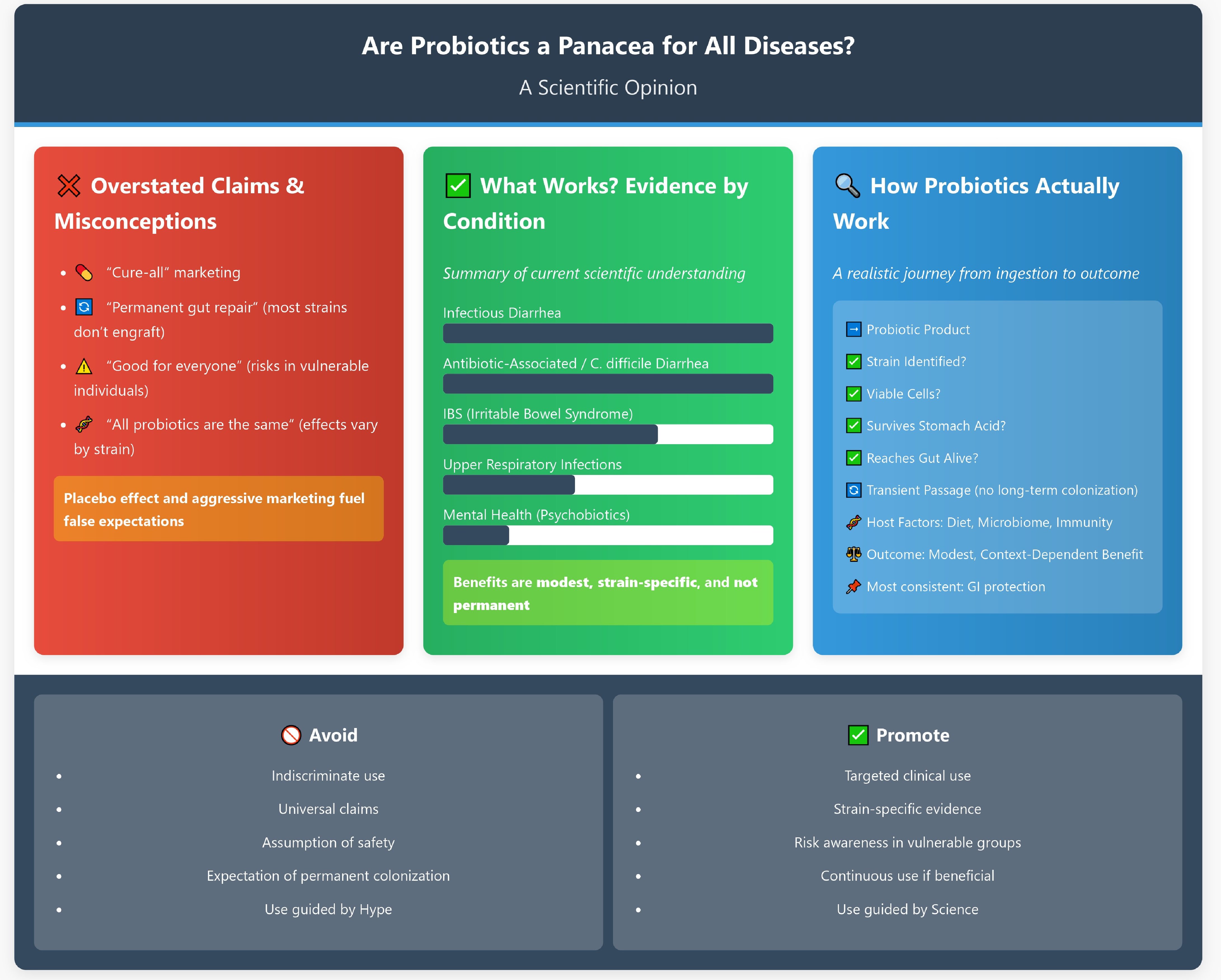Open Access
Editorial
25 April 2025Open Access
Opinion
22 August 2025Are Probiotics a Panacea for All Diseases? A Scientific Opinion
Probiotics have gained widespread attention for their potential health benefits, particularly in promoting gut health and modulating the immune system. This article critically examines whether probiotics can be a universal remedy for all diseases, as often claimed in scientific literature and popular media. The objective is to evaluate the current scientific evidence regarding the efficacy of probiotics in preventing and treating various medical conditions, including gastrointestinal disorders, metabolic syndromes, allergies, and mental health issues. While some studies suggest promising outcomes in specific contexts, the evidence remains inconsistent and often limited to specific strains and conditions. Importantly, this review highlights that probiotics are not a one-size-fits-all solution and their effects can vary widely depending on individual physiology, dosage, and microbial composition. The article also addresses safety concerns, regulatory challenges, and the need for more rigorous, large-scale clinical trials. By analyzing existing data and expert opinions, this work aims to separate fact from hype and provide a balanced perspective on probiotics’ true potential and limitations in modern medicine.
Open Access
Article
26 September 2025Cashew Nut Shell Liquid as Natural Antimicrobial Preservative for Beef: Characterization, Formulation, Efficacy and Application
Food spoilage caused by microbial contamination has remained a major challenge in meat preservation, especially in regions with limited refrigeration infrastructure. The potential of cashew nut shell liquid (CNSL) as a natural antimicrobial preservative for beef, which is culturally significant and a highly consumed meat product worldwide, was investigated. The CNSL was extracted using ethanol and characterized by Gas Chromatography-Mass Spectrometry (GC-MS) and Fourier-Transform Infrared Spectroscopy (FTIR). Results revealed a high abundance of phenolic lipids, cresols, cardanol and resorcinol derivatives, with active O-H and C-O functional groups. The antimicrobial efficacy against Pseudomonas, Clostridium spp. and Proteus spp., which are major bacteria implicated in meat spoilage, was assayed by applying different concentrations (0.5%, 1.0% and 2.0%) of CNSL to the meat samples and evaluating microbial loads over a 14-day storage period. Results indicate a significant reduction in total viable counts and pathogenic bacteria, with optimal preservation observed at 2.0% CNSL. The study demonstrates that CNSL exhibits potential to act as an effective natural preservative and sets the foundation for its application in sustainable meat preservation strategies.

